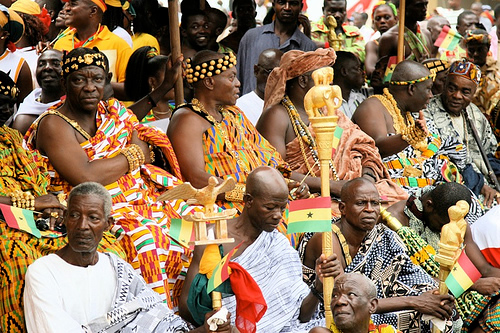Professor Amartey urges chiefs to network

Professor Abednego Feehi Okoe Amartey, the Vice Chancellor, University of Professional Studies, Accra (UPSA), has urged chiefs to network with their fellow traditional leaders for collaboration and partnership for community development.
He said it was regrettable to observe that many traditional leaders had the skills and knowledge and indeed the ability to make useful contributions to the socio-economic development in Ghana, but failed to do so because of self-interest.
Prof Amartey made these remarks on Monday in Accra at the opening of a five-day workshop for traditional rulers organised by the Otumfuo Centre for Traditional Leadership (OCTL), UPSA.
The workshop is being attended by over 50 paramount chiefs and queen mothers, divisional chiefs, staff of Traditional Councils, National and Regional Houses of Chiefs.
Prof Amartey said the workshop sought to empower traditional leaders with leadership skills that would enhance their ability to manage their communities and all the resources under their care and generate revenue for community developmental projects.
He said the OCTL was established at the UPSA a few years ago to provide the platform for an institutionalized training programme for traditional leaders that would enhance their capacity to lead and manage their resources effectively and sustainably.
Among the objectives of the Otumfuo Centre is to empower the traditional leaders and staff to bring about constructive change necessary for development in their various communities.
Prof Amartey said there had been a paradigm shift in the functions of traditional leaders and chiefs; stating that “gone are the days when chiefs led their people to war to defend, protect and extend territories”.
“In contemporary times however, the nature of warfare for the chiefs has changed. Wars are no longer fought against external aggressors but against poverty and hunger, diseases, illiteracy, crime, injustice, environmental degradation, depletion of resources, greed and ignorance.
“Today, it is no longer an affront to require the chief or king to account to the people for how certain decisions have been taken or how funds have been expended,” he stated.
Prof Amartey said the modern Ghanaian society expected the chief to be accountable when it came to the expenditure of public funds.
“Good Traditional leadership is also about transparency. Without accountability and transparency, there cannot be trust between our traditional leaders and the people they lead,” he said.
“In our contemporary times therefore, the importance of modern traditional leadership techniques is vital. With this kind of paradigm shift in the functions of traditional leaders and chiefs, it has become absolutely necessary to provide the traditional leaders with training for good governance,” he added.
He said the provision of training in traditional leadership issues such as leadership skills, land administration, conflict management, negotiation skills, records and documentation management was therefore imperative and would prepare the traditional leaders to handle the myriad of challenges facing their communities.
He urged the traditional rulers to prepare marketing plans to showcase tourist attractions within their communities to investors.
Lepowura Alhaji Mohammed Nuru-Deen Jawula, the Consulting Director of the OCTL, called for the establishment of a second chamber of Parliament in place of the Council of State, with chiefs as members.
He urged his fellow chiefs to desist from supporting any illegal mining activities “galamsey” as it was having various environmental consequences.
A former Justice of the Supreme Court, Mr Justice Stephen Alan Brobbey, who chaired the function, noted that day in and day out, new laws were being passed by Parliament and therefore, it was essential that chiefs kept themselves abreast with the laws of the country, so that they could enforce them.
Nana Kobina Nketsia V, the Paramount Chief of the Essikado Traditional Area, lauded the UPSA Management and the OCTL, for instituting the training programme for chiefs.
He said real development emanates from the chiefs and people of the country; adding that chieftaincy played a pivotal role in the governance of the country.
Source: GNA
